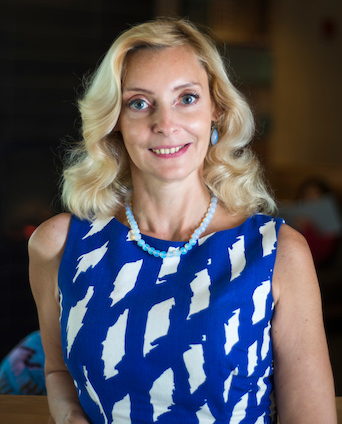
Karina Korostelina
The recent agreement between Russian and Ukrainian leaders to implement a ceasefire in eastern Ukraine by the end of 2019 shows greater promise than the peace talks that fell apart in 2015, said Karina Korostelina, a professor in George Mason University’s School for Conflict Analysis and Resolution.
“In comparison with the previous Ukrainian administration that depicted Russia as an evil enemy and rejected any possibilities of negotiation and compromise, the new president and parliament clearly aim to terminate violence and war,” said Korostelina, whose research examines the impact of chronic violence in Ukraine and resilience practices developed by the nation. “Similarly, the prisoner swap [on Sept. 7] demonstrated the acknowledgement by Russia of the changes in the new Ukrainian approach to the conflict.”
The goal of the Dec. 9 talks in Paris between Russian President Vladimir Putin and Ukrainian President Volodymyr Zelensky was to resolve the more than five years of conflict between pro-Russian separatists and Ukrainian forces. According to the BBC, more than 13,000 people have died in the fighting.
Though a resolution has been elusive, circumstances could change, Korostelina said. Among those are Zelensky’s election mandate to terminate the violence and create an economically successful Ukraine, the new administration’s strategy to decentralize Ukraine to combat corruption, and Russia’s motivation to resolve the conflict as part of an effort to rejoin the G8 economic group, Korostelina said.
While both parties seem to want to the violence to end, “many significant issues remain unresolved,” Korostelina said. “The peace process is impeded by both the preconditions of Russia and persistent positions of Ukraine toward the conflict.”
Putin did not show a willingness to change the principles of Russia’s foreign policy and, contrary to Ukraine, did not show support for the withdrawal of Russian troops from the separatist-held territories nor for elections to be held in the region under the Steinmeier Formula, Korostelina said.
“The European Union (EU) should find a balance between supporting Ukraine and searching for a renewed relationship with Russia,” Korostelina said, adding that the EU’s pressure on Zelensky to agree to more compromises could lead to increased tensions in Ukraine.
A successful negotiation process would address humanitarian issues, military and trade tensions, and human rights violations in Crimea, Korostelina said. “And the European Union and the United States should support the civic society of Ukraine in promoting inclusive polices.”
Karina Korostelina can be reached at 703-380-8544 or ckoroste@gmu.edu.
For more information, contact Mariam Aburdeineh at 703-993-9518 or maburdei@gmu.edu.
About George Mason
George Mason University is Virginia’s largest public research university. Located near Washington, D.C., Mason enrolls 38,000 students from 130 countries and all 50 states. Mason has grown rapidly over the past half-century and is recognized for its innovation and entrepreneurship, remarkable diversity and commitment to accessibility.
